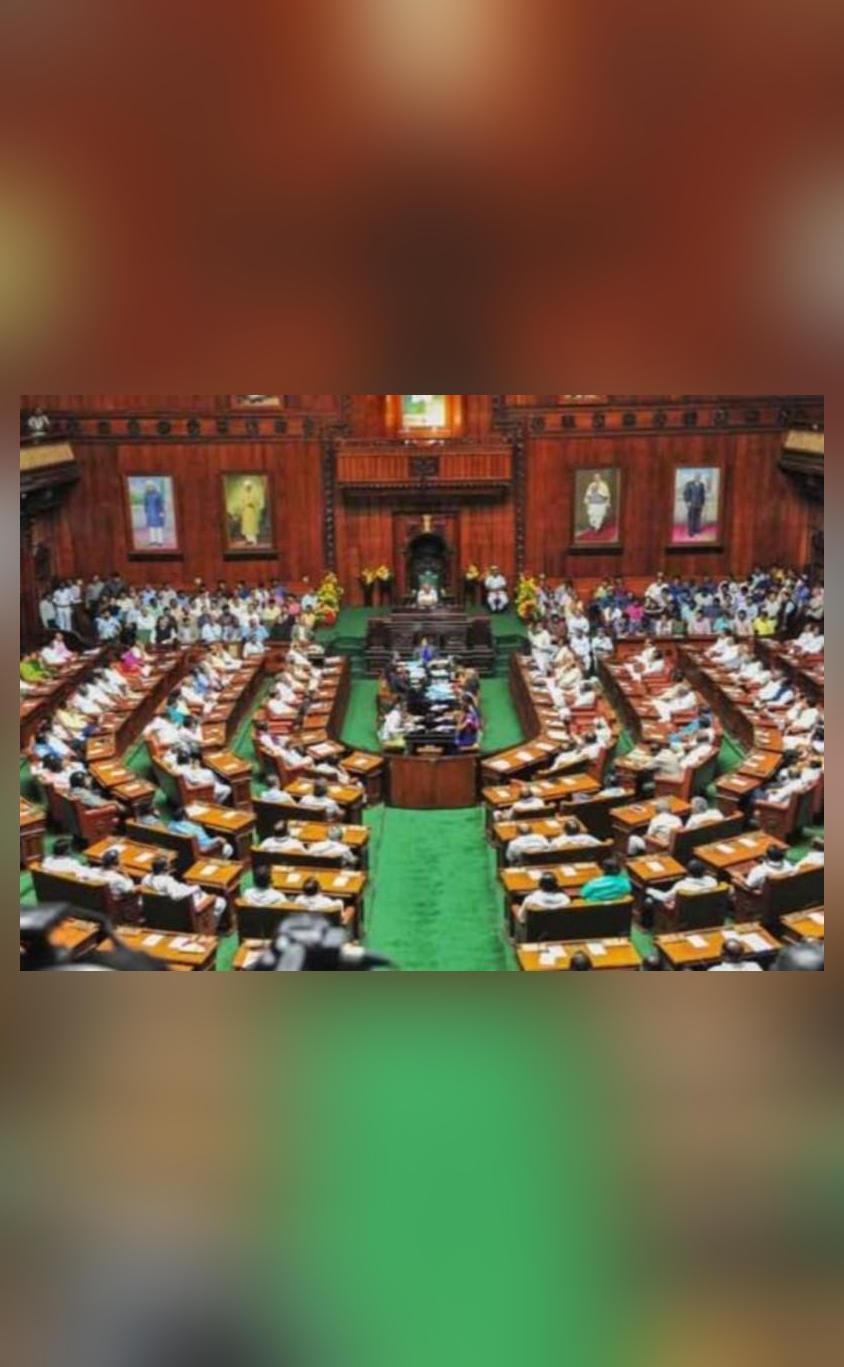
Karnataka Assembly Passes Resolution Against Waqf Amendment Bill
The Karnataka Assembly has passed a significant resolution rejecting the Waqf (Amendment) Bill, 2024, citing concerns over secularism. The bill, which was introduced by the Central government, aimed to amend the Waqf Act, 1995, to provide for the constitution of a National Waqf Development Corporation. However, the Karnataka Assembly has rejected the bill, urging the Centre to withdraw it.
The resolution was moved by Law and Parliamentary Affairs Minister HK Patil, who led the Opposition in the House. Patil emphasized that the bill did not reflect the aspirations of all sections of society and went against the values of secularism. He said, “This Act does not reflect the aspirations of all sections of society. The House has unanimously rejected this amendment…it goes against the values of secularism.”
The Karnataka Assembly’s decision to reject the Waqf Amendment Bill has sent a strong message to the Central government, highlighting the concerns of the people and the state government over the bill’s provisions. The bill, which was introduced in the Lok Sabha in March 2024, sought to make significant changes to the Waqf Act, 1995, which governs the administration of religious endowments, commonly known as wakfs, in the country.
The Waqf Amendment Bill aimed to establish a National Waqf Development Corporation, which would oversee the development and management of wakfs across the country. The bill also proposed to empower the National Commission for Waqf to take over the management of wakfs in states where the wakf boards were not functioning effectively. Additionally, the bill sought to increase the jurisdiction of the Waqf Tribunal to hear appeals related to wakfs.
However, the Karnataka Assembly’s resolution rejecting the bill has raised concerns over the potential impacts of the bill on the administration of wakfs in the state. The resolution urged the Centre to withdraw the bill, citing concerns over secularism and the potential for the bill to compromise the autonomy of wakfs.
The rejection of the Waqf Amendment Bill is significant not only for Karnataka but also for the country as a whole. The bill, if passed, would have had far-reaching implications for the administration of wakfs across the country. The rejection of the bill by the Karnataka Assembly is a clear indication of the concerns of the people and the state government over the bill’s provisions.
The Karnataka Assembly’s decision to reject the Waqf Amendment Bill is also seen as a victory for the Opposition parties in the state, which had been opposing the bill since its introduction. The Opposition parties had been critical of the bill, citing concerns over its potential impacts on the administration of wakfs and the autonomy of wakf boards.
The rejection of the Waqf Amendment Bill is also seen as a setback for the Central government, which had been pushing for the passage of the bill. The government had argued that the bill was necessary to provide for the development and management of wakfs across the country. However, the Karnataka Assembly’s rejection of the bill has highlighted the concerns of the people and the state government over the bill’s provisions.
In conclusion, the Karnataka Assembly’s rejection of the Waqf Amendment Bill is a significant development that has sent a strong message to the Central government over the concerns of the people and the state government over the bill’s provisions. The bill, if passed, would have had far-reaching implications for the administration of wakfs across the country. The rejection of the bill is a clear indication of the concerns over secularism and the potential for the bill to compromise the autonomy of wakfs.






